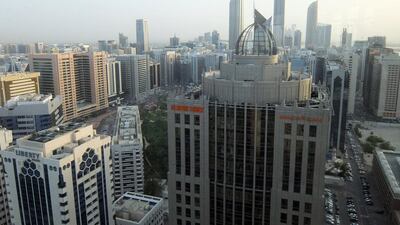The UAE climbed five places in the annual rankings of the IMD World Competitiveness report to number 10 amid moves by governments to decrease reliance on oil revenues and an increase in the private sector’s role in the economy.
In the separate IMD ranking on digital competitiveness, the country gained seven places to number 18. Hong Kong and Switzerland came in first and second, unchanged from last year, while Singapore climbed one place to take the number three spot.
“The reform announced by the UAE government at the beginning of 2015 seems to be paying off,” said Arturo Bris, the director of the IMD World Competitiveness Center, a research centre at IMD business school.
“The international sector of the country has improved significantly (more and better exports), international investment has grown and employment numbers are relatively good as well. The most important factor driving the UAE rankings is, however, executive perceptions regarding the future and resiliency of the economy: executives think the government is delegating much more to the private sector, the role of job and wealth creation; there is less protectionism and more transparency.”
Mr Bris said overall this year’s ranking marks the way of the UAE towards the most competitive economies in the world.
The report comes amid of flurry of optimism over the economy, especially the non-oil economy. That follows a rebound in oil prices, since November, which has improved business confidence. An uptick in global trade has made economists, including those at the IMF, upbeat about the local economy.
The non-oil economy will rebound this year on stronger global trade and investment spurred by Dubai Expo 2020, the IMF said in May.
Non-oil GDP is forecast to expand at 3.3 per cent this year with the budget deficit shrinking to 4.5 per cent of GDP, it said. Overall, the economy will expand by 4.4 per cent next year from 1.5 per cent this year, according to the fund.
Private-sector companies are especially optimistic about growth. Private companies operating outside the oil sector expect to be more profitable in the next six months, a survey by the export credit consultancy Coface showed in May.
About 43.5 per cent of exporters and 42 per cent of UAE domestic suppliers forecast profitability in the next six months, with 52.2 per cent and 59 per cent, respectively, expecting a gain in sales from the previous year, according to the survey.
“Boosting competitiveness, productivity and institutional efficiency has been a key focus of the government over the last few years,” said Monica Malik, the chief economist at Abu Dhabi Commercial Bank. “The [IMD] ranking likely reflects this focus, alongside the business friendly environment and the high level of infrastructure.”
The UAE dropped out of the top 10 in 2015 as scores decreased on domestic economy, international trade, domestic economy and management practices. This was at a time when the price of oil reached some of its lowest levels after the massive crash that started in summer 2014.
mkassem@thenational.ae
Follow The National's Business section on Twitter

